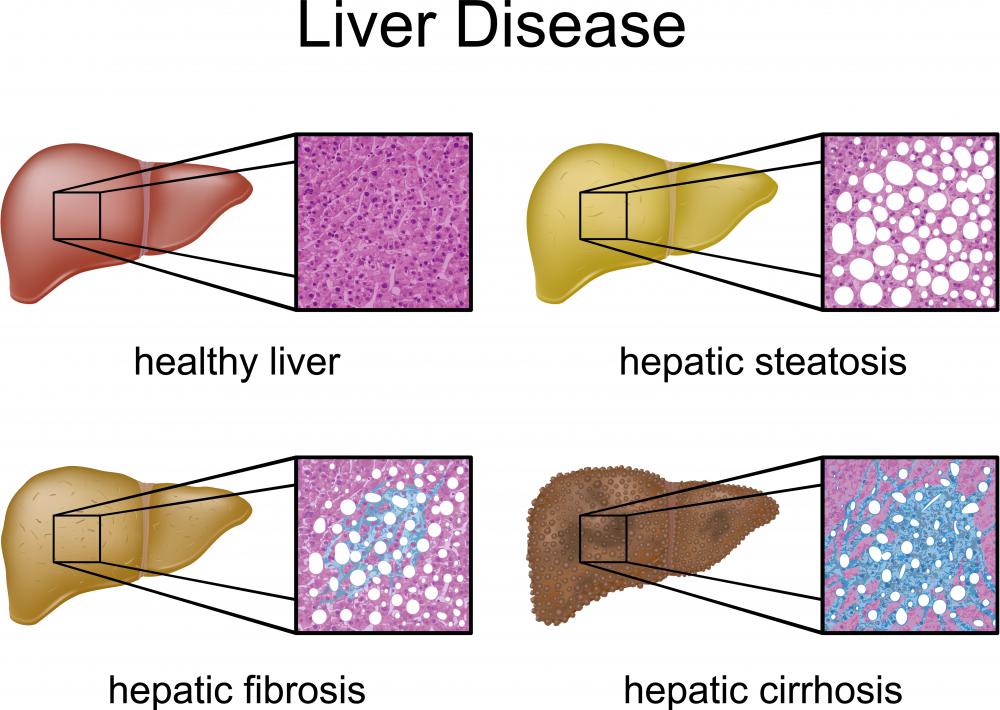At WiseGEEK, we're committed to delivering accurate, trustworthy information. Our expert-authored content is rigorously fact-checked and sourced from credible authorities. Discover how we uphold the highest standards in providing you with reliable knowledge.
What is a Foot Edema?
Foot edema is swelling in the foot and ankle due to excess fluid buildup. The condition is usually painless by itself, though swelling can cause discomfort when walking or wearing tight shoes. Most cases of foot edema are short-lived and not serious health concerns; fluid buildup can be caused by sitting in one position for too long or taking certain medications. It is possible, however, for edema to be a sign of a major underlying disorder, such as liver or kidney failure. Doctors can explain different home remedies to relieve mild edema and prescribe medications for larger problems.
Hundreds of tiny blood vessels called capillaries provide blood and fluid to tissues in the foot. Mild edema occurs when the blood vessels are damaged or compressed, causing them to leak. The fluid loss triggers the kidneys to retain extra water and sodium from the diet, which eventually enter the bloodstream, travel to the foot, and again leak out of capillaries. Excess free fluid in tissue is responsible for swelling symptoms.

In many cases, mild swelling that worsens over the course of a day is the only sign of edema. A person's shoe may feel tighter at night than it did in the morning. When swelling increases, the skin on the foot becomes tender and shiny. An indentation can remain for several seconds after pushing on a swollen part of the foot. If an underlying health problem is responsible, additional symptoms such as fever, fatigue, headaches, joint pain, and increased urination may be present.

Common causes of mild foot edema include a long car or airplane ride, eating salty foods, direct trauma to the foot, and pregnancy. Swelling is usually no cause for concern in pregnant women, though worsening edema in the second or third trimester may be a sign of a more serious problem called preeclampsia. Taking birth control pills, blood pressure medications, and hormone supplements can also cause swelling. Blood clots, blood infections, cirrhosis, kidney damage, or heart complications are potential causes of foot edema that require prompt medical attention.

Doctors strongly encourage people who experience lasting foot edema to schedule physical exams or visit the emergency room. A physician can inspect the foot, ask about medication use and health history, and collect blood and urine samples for lab analysis. X-rays may be taken as well to look for physical damage inside the foot. Once the cause is discovered, the appropriate treatment decisions can be made.

Mild edema can usually be cured by staying active and elevating the foot during sleep. Blood and fluid eventually drain from the region and the kidneys stop retaining water. Support stockings are available at most pharmacies to compress swollen ankles and make it easier to wear shoes and move about. A doctor may also suggest adopting a low-salt diet, taking aspirin, or using a diuretic to further improve symptoms. Additional medications or surgeries may be needed to deal with a major underlying disorder.
AS FEATURED ON:
AS FEATURED ON:

















Discussion Comments
@ddljohn-- Yes, medications can cause mild leg, ankle and foot edema as a side effect. What are you taking?
I'm taking a calcium channel blocker for high blood pressure. This medication sometimes causes foot edema because it leads to water retention.
You should read the side effects of your medications and see if edema is mentioned. Or you could ask your pharmacist. It's a good idea to see a doctor if your edema becomes constant and severe.
Can medications cause bilateral foot edema? I started experiencing edema in both of my feet recently and I can't figure out why it's happening.
I've only had foot edema once, after a very long international flight. I didn't even realize it, my mom noticed my swollen feet and ankles. My feet were about twice their normal size! It was scary to see.
I did a foot soak with Epsom salt and then elevated my legs. The edema was gone by morning. My doctor said that this occurs because the legs and feet are still for a long time during flights. Now I try to get up and walk every once in a while to help with blood circulation during long flights. It seems to do the trick.
Post your comments